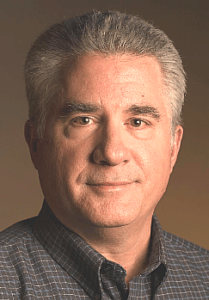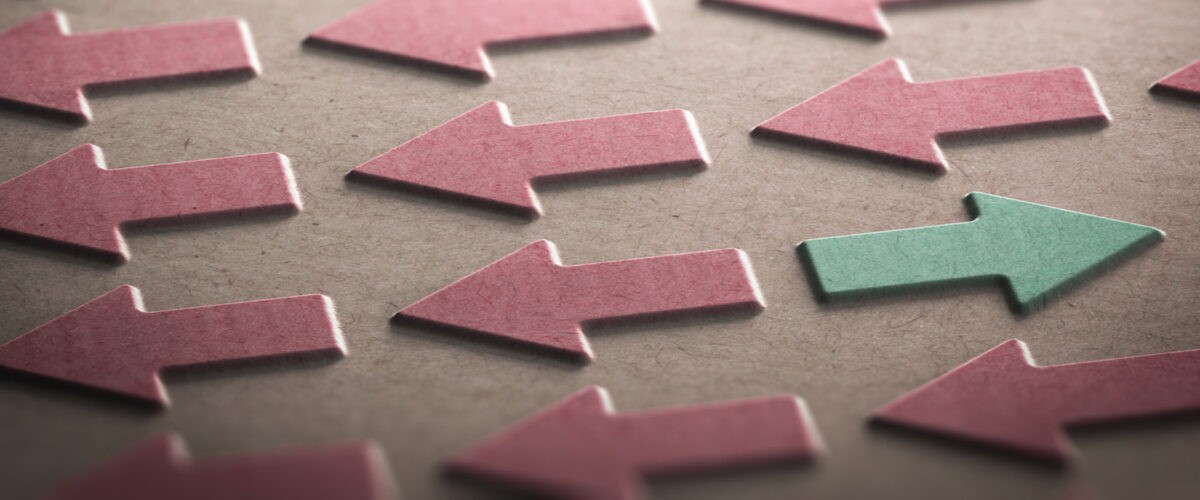My son and firstborn — the crying bundle I held in my arms in the delivery room, the little kid who seldom won at hide-and-seek because he couldn’t stop giggling, the boy who couldn’t beat me at wrestling because I was too big to pin — turns 30 this month.
He’s now a police officer, with lightning reflexes and martial-arts skills. I wouldn’t dream of wrestling him. He’d probably break my arm.

Erich Bridges
This month I also mark five years since my beloved wife, who delivered our son into the world, died of metastatic breast cancer. I wish she were here to see him in uniform. She would be proud. She’d also worry about him too much.
Time passes. People are born. People die. Things change. Empires rise and fall. Even the United States, not yet 250 years old (a toddler in historical terms), is looking kind of shaky.
Stuck in their ways
Often, change is good. It’s called progress, as hard as that is for folks stuck in their ways to accept. I’m thankful for modern medical care; without it, my wife and son might not have survived that delivery room. I celebrate antibiotics, vaccinations, better global access to food and clean water, widespread literacy, basic rights and respect for women and people of color, the computer on which I am writing this. I’m excited by new technologies that enable instant communication, global economic growth and the rapid spread of the Christian gospel. Countless millions have been lifted out of physical poverty and spiritual darkness in the modern world.
Still, change can be hard even when it’s needed.
“It’s disheartening to watch the idols of my youth turning into old grumps,” admitted writer Brian Broome in a recent Washington Post column. “But I know that, at 51, I am also out of step, and that many of my ideas are old-fashioned. And I rediscover this on an almost daily basis. How could it be otherwise? I work with predominantly younger people who are more than happy to remind me. …
“Turning this around, it is often hard for younger people to understand how getting older is at times deeply disorienting. It often feels as though the earth is shifting constantly under your feet; things that were once perfectly acceptable can turn harmful. … Attitudes change. Language changes. At times, it can be a lot to understand. And it leaves me with two choices. I can try to learn the ways that our culture and our country are changing. And work to accept them with grace. Or I could rail against the sunrise every morning — and turn into an old grump myself. The latter approach doesn’t sound productive to me.”
Amen, Brian. You’re probably doing a better job of it than I am. Fifty-one sounds young to me, and I rail against the sunrise and the sunset. “Do not go gentle into that good night” is my motto.
The nature of change
However, change isn’t inherently good. Think leisure suits, gangsta rap, flavored coffee. Climate change isn’t looking too peachy for the planet or for humanity. Far-right extremists threaten to change American democracy into a nationalist dictatorship. Democracies elsewhere face similar attacks. The far left, meanwhile, would love to do away with free speech so no one will ever be “offended.”
“Change isn’t inherently good.”
The Bolsheviks overthrew the oppressive czarist regime in Russia in 1917, promising to introduce the New Soviet Man and the dictatorship of the proletariat. Tens of millions of deaths later, how’s that going? How about the racist American “science” of eugenics, which inspired the Nazis to try to create a master race? Chairman Mao believed (or pretended to believe) in continuous revolution. The disaster of the Chinese Cultural Revolution shows how that turned out.
I was a child of the 1960s and ’70s. I cheered for the New Left in my tie-dyed T-shirt just long enough to realize — even at that tender age — that overthrowing every institution, not just the bad ones, wouldn’t end well. I studied a little history in college and traded my T-shirt for a subscription to National Review, the conservative journal William F. Buckley launched in the 1950s.
Buckley, may he rest in peace, was the father of modern American conservatism — which is more or less the direct descendant of the classic English conservatism of Edmund Burke (1729-1797), who looked on in horror at the mindless bloodshed and destruction of the French Revolution. Buckley was one of the best and wittiest writers America has produced. He could be spectacularly arrogant and wrong, but when he was right, he was dead on.
“A conservative is someone who stands athwart history, yelling ‘Stop,’ at a time when no one is inclined to do so, or have much patience with those who so urge it,” Buckley declared.
“The true conservative seeks not to uphold tradition for the sake of tradition, but to preserve what is best in culture, tradition, religion and morals, lest we sink into chaos and anarchy.”
That’s as good a definition as I have ever come across. The true conservative seeks not to uphold tradition for the sake of tradition, but to preserve what is best in culture, tradition, religion and morals, lest we sink into chaos and anarchy. And the barbarians are almost always at the gates. If there are no absolutes we are prepared to defend, nihilism and extremist ideologies of all kinds enter in.
I’m glad Buckley isn’t here to see what has become of so-called American “conservatism,” which has been co-opted and corrupted by Trumpists, cynical opportunists and outright crazies. He would weep with rage and despair. But his first principle stands: Strengthen that which remains.
Reformers and preservers
As with the culture and the state, so it is with the church. Christianity always needs reformers — now as much as when Martin Luther burst on the scene. But it also needs preservers. Believers are suffering and dying in many places today because they refuse to renounce the simple faith Christians have followed for centuries. Are they being stubborn or backward? No. They are being faithful.
Jesus was the greatest spiritual reformer of all. Yes, he was a revolutionary, but he didn’t seek to overthrow Jewish theology. He came to fulfill it, to incarnate the promise God made to Abraham 2,000 years before to bless all nations through Abraham’s seed.
Think about that, Christian deconstructionists. Deconstruct all you want; American Christianity certainly needs the spiritual housecleaning. But don’t reject the essentials. If you leave behind Jesus the Christ, the crucified and resurrected Lord who calls us to belief, repentance and salvation in him alone, you are not deconstructing the faith. You are abandoning it.
Erich Bridges, a Baptist journalist for more than 40 years, retired in 2016 as global correspondent for the Southern Baptist Convention’s International Mission Board. He lives in Richmond, Va.
Related articles:
‘A Change Is Gonna Come’: Ahmaud Arbery and the call to transform injustice | Opinion by Kathy Manis Findley
‘Spiritual vitality’ and willingness to change on the rise in U.S. congregations
Social liberalism grows while economic conservatism still dominates


